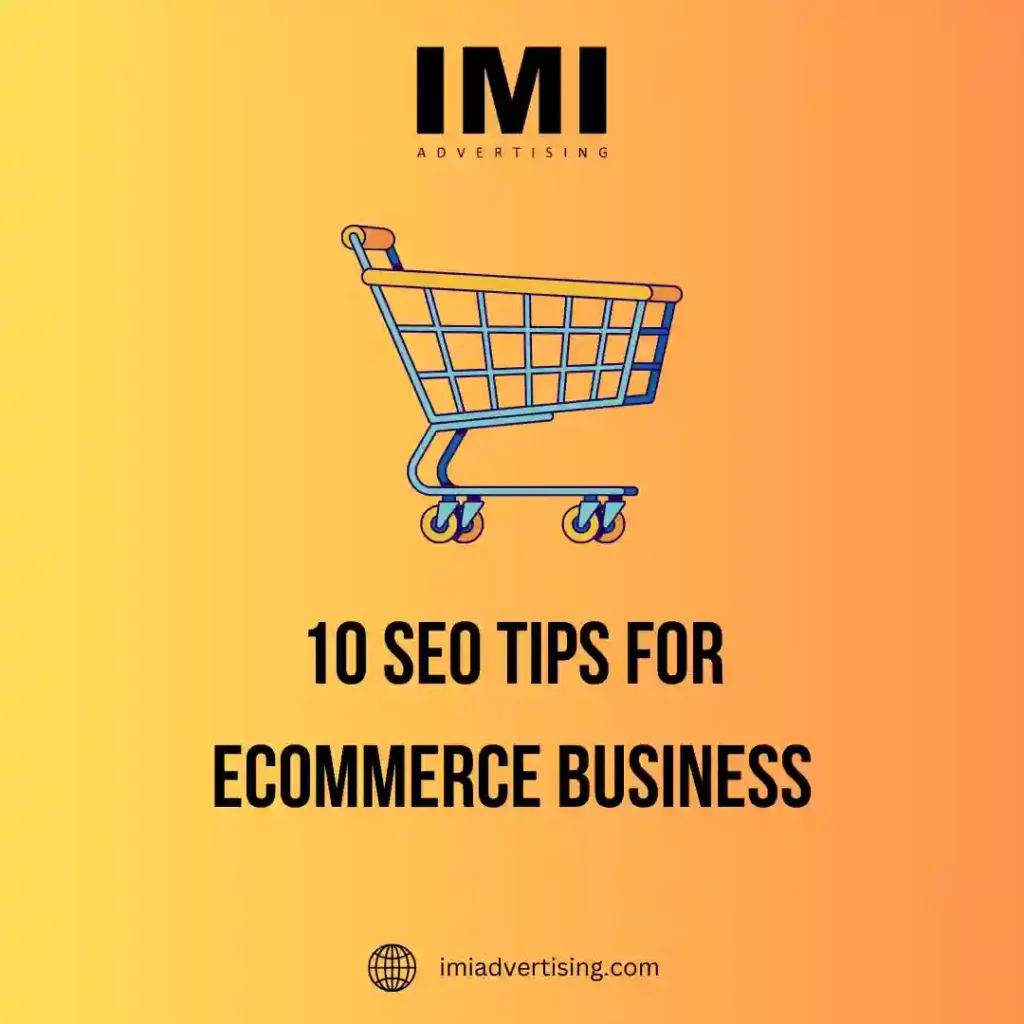10 SEO Tips for E commerce Business

Optimising an ecommerce website for search engines is crucial for driving organic traffic and increasing sales. Here are 10 SEO tips specifically tailored for ecommerce businesses:
- Keyword Research:
- Conduct thorough keyword research to identify relevant, high-converting keywords. Focus on product-related and long-tail keywords that match the intent of potential customers.
- Unique Product Descriptions:
- Write unique and compelling product descriptions for each item you sell. Avoid using manufacturer-provided content, as duplicate content can harm SEO.
- Optimise Product Images:
- Optimise product images by using descriptive file names and adding alt text that includes keywords. This helps with image search and accessibility.
- User-Friendly URLs:
- Create clean, keyword-rich URLs for your product pages. Avoid using parameters or random strings in your URLs.
- Mobile Optimization:
- Ensure your ecommerce website is mobile-responsive. Google prioritises mobile-friendly sites in its rankings and mobile users make up a significant portion of online shoppers.
- Site Speed Optimization:
- Optimise your website for speed by compressing images, leveraging browser caching and minimising code. Fast-loading pages improve both user experience and SEO.
- Structured Data Markup (Schema):
- Implement structured data markup (schema markup) to provide search engines with additional information about your products, such as price, availability and ratings. This can lead to rich snippets in search results.
- User Reviews and Ratings:
- Encourage customers to leave reviews and ratings for your products. Displaying these reviews on product pages can boost trust and click-through rates in search results.
- Internal Linking:
- Use internal links to connect related products or categories within your site. This helps both users and search engines navigate your site more effectively.
- Optimise for Long-Tail Keywords:
- Long-tail keywords often have less competition and can convert well. Create content and product listings that target these specific, less competitive keywords.
Remember to regularly monitor your site’s performance using SEO analytics tools and be prepared to adapt your strategy based on the results. SEO for ecommerce is an ongoing process and staying updated with industry trends and algorithm changes is crucial to maintaining and improving your search rankings.
Recent Posts
-
How IMI Advertising Achieved 2X Growth in the Game Website19 Apr 2024
-
How IMI Advertising Helped iBoon Technologies to Achieve Ranking for Competitive Keywords by 68%14 Mar 2024
-
The Crucial Role of Content Freshness in SEO: Ahmedabad's Best SEO Company09 Feb 2024
-
What is a Digital Marketing Funnel?25 Sep 2023
-
10 SEO Tips for E commerce business18 Sep 2023
Have Any Question?
- 093131 00658
- [email protected]



